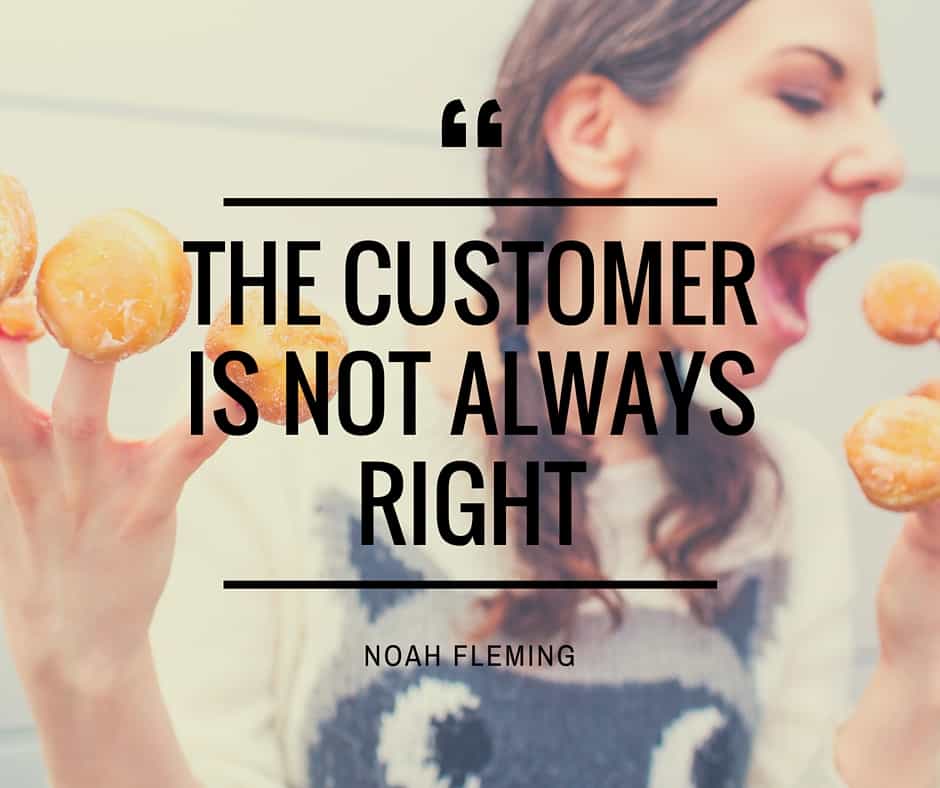We all know the customer isn’t always right.
In his classic book Winning Jack Welch talks about the importance of Candor within a company–being honest about the impact and effectiveness of divisions, of people, of products, and taking action to change them rather than trying to convince everybody that things are really okay (even when they’re not).
Candor is crucially important when communicating with your customers and clients too. Not just the ability to tell them when you were wrong or made a mistake, (which can often come off as pandering), but to tell them when THEY are wrong.
For example, not every customer is worth keeping. Candor sometimes requires you to fire customers. Think about the Hungry Hippos and Problem Children who can make things incredibly tough for your people, and costly for your company.
Candor sometimes requires turning down business that would require you to deviate from your methods, which you know work.
Some client demands are unreasonable, and you have a duty to tell them when they’re wrong.
Last week we learned the lesson of Boaty McBoatface and the dangers of customer feedback. The biggest lesson for me was that while candor was required to tell the customer they were wrong, they failed miserably when it came to admitting they made a huge mistake in the first place.
Look, I’m not trying to badmouth customers and clients here. I literally wrote the book on creating long-term, sustainable, and highly profitable customer relationships, and I know how important it is to keep your customer base happy. But we can’t let that cloud the bigger picture
The customer is often right AND wrong. hThe real challenge is being candid with our customers, while also showing them the respect they deserve.
Here’s one way to test your organization’s ability to do this, and your key challenge for this week.
Think of an absurd request, that anybody in your organization would have to deny a customer. Then secret shop as many of your people as you can and see how they say no.
